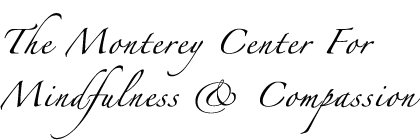Trauma-Informed Mindfulness … and Why it Matters
For centuries, we humans have experienced the healing possibilities of contemplative practices. And in modern times there’s plenty of research to help explain how that makes sense, mentally and physiologically.
But what about those of us for whom contemplative practices stir up intense emotional reactions that feel overwhelming, even harmful, instead of healing?
Here’s what we know about the bodily effects of mindfulness meditation: As these practices help us refine our skills of introception (perception of internal, bodily sensation), we can learn to gently monitor our bodies’ distress signals in ways that mediate our nervous system’s fight-flight-freeze reaction. Effects include improved health and emotional well-being.
Mindfulness and compassion practices bring us into connection with countless, hidden healing resources held within the countless fibers of our physical being. Yet for those of us who’ve known deep emotional hardship, it’s not so simple. Sitting in stillness, following the breath, and feeling the vicissitudes of our own mental and bodily shifts can risk retraumatization, when emotional injury — known as trauma — is not yet “integrated.”
Neuroscience shows that the bodily effects of trauma surface as a kind of ‘freeze’ in parts of our nervous system. This is the body’s way of protecting us by, in effect, walling off bodily memory of trauma experiences that otherwise would be overwhelming. With proper help, those ‘frozen’ parts can be sensitively, mindfully reintegrated, and once again felt as manageable lived experience. They can morph into our wisdom, rather like internal messengers.
This is a time in which many of us are struggling with situational trauma - from seemingly “mild,” to intense. There are many ways to start practicing mindfulness, and it’s important in every case to stay safe: Monitor for hints of overwhelm, and give yourself permission to take breaks as needed, and/or check in with a skilled helper.
At MCMC we offer trauma-informed mindfulness from a trained and certified practitioner. Feel free to contact Meika Hamisch if you're curious, and believe you can benefit from trauma-informed practices.
